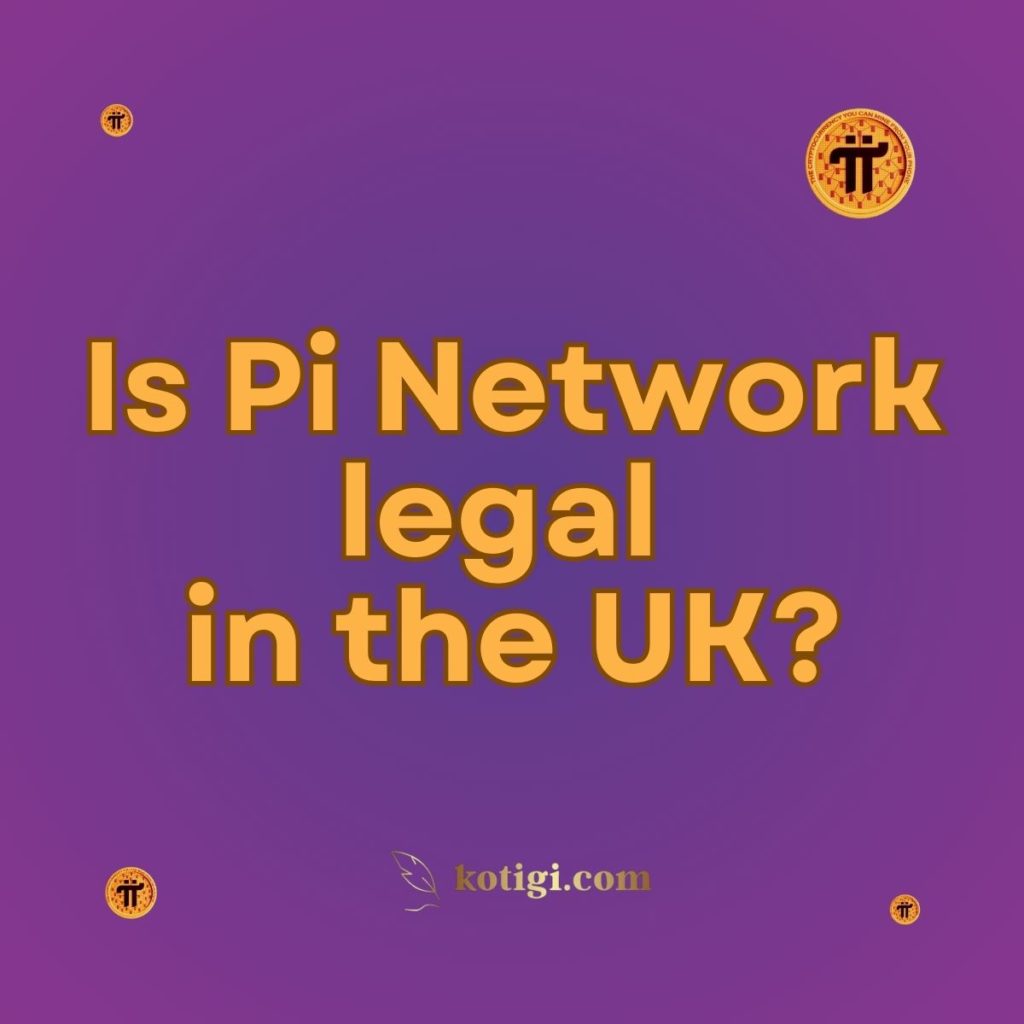
Is Pi Network legal in the UK?
The legal status of Pi Network in the UK is influenced by the country’s regulatory framework for cryptocurrencies and digital assets. Here’s an overview of how Pi Network fits into the legal landscape in the UK:
1. Cryptocurrency Regulation in the UK
1.1. General Legality
Cryptocurrencies, including Pi Network, are generally legal in the UK. The Financial Conduct Authority (FCA) is the primary regulator overseeing cryptocurrency activities in the country. While the FCA does not regulate cryptocurrencies directly, it does oversee certain activities related to digital assets, particularly those involving financial services.
1.2. FCA Registration and Compliance
Businesses involved in cryptocurrency activities, such as exchanges and wallet providers, are required to register with the FCA and comply with anti-money laundering (AML) and counter-terrorist financing (CTF) regulations. Although Pi Network itself is not an exchange, if it facilitates the exchange of Pi coins or related financial services in the future, it may need to comply with these regulations.
2. Financial Promotions and Consumer Protection
2.1. Financial Promotions
The FCA has strict rules regarding financial promotions in the UK, especially for high-risk investments like cryptocurrencies. If Pi Network or its promoters make any financial promotions, these must be fair, clear, and not misleading. Misleading promotions can result in legal action by the FCA.
2.2. Consumer Protection Laws
The UK has robust consumer protection laws that apply to all businesses, including those operating in the cryptocurrency space. Pi Network must ensure transparency and fairness in its operations and communications with users in the UK to comply with these laws.
3. Securities Regulation
3.1. Determining Whether Pi Is a Security
The UK’s approach to determining whether a digital asset is a security is similar to that of other jurisdictions. If Pi coins or tokens are considered securities, Pi Network would need to comply with securities laws, including prospectus requirements and restrictions on who can participate in certain types of investments.
3.2. Token Offerings
If Pi Network conducts any token offerings or Initial Coin Offerings (ICOs) in the UK, it must ensure compliance with the FCA’s regulations concerning securities. This may involve providing detailed disclosures to investors and registering the offering with the appropriate authorities.
4. Anti-Money Laundering (AML) and Know Your Customer (KYC) Requirements
4.1. AML Compliance
Like in the USA, Pi Network must comply with AML regulations in the UK. This involves implementing procedures to prevent money laundering and terrorist financing, such as conducting Know Your Customer (KYC) checks to verify the identity of users.
4.2. Registration as a Money Services Business (MSB)
If Pi Network engages in activities that fall under the definition of a money services business, such as facilitating the exchange or transmission of Pi coins, it may need to register with the FCA and comply with additional regulatory requirements.
5. Legal Risks and Regulatory Challenges
5.1. Evolving Regulatory Landscape
The UK’s regulatory approach to cryptocurrencies is continually evolving. Pi Network needs to stay informed about changes in regulations that could impact its operations in the UK. Compliance with new regulations will be essential to maintain legality.
5.2. Legal Advice and Compliance Strategy
To ensure it operates legally in the UK, Pi Network should seek legal advice and develop a comprehensive compliance strategy. This includes staying up-to-date with regulatory changes, understanding the implications of UK laws on its activities, and ensuring that all operations are within legal boundaries.
Conclusion
Pi Network is generally legal in the UK, provided it adheres to the regulatory requirements set by the FCA and complies with relevant consumer protection laws. As the regulatory environment for cryptocurrencies continues to develop, Pi Network will need to stay compliant with evolving regulations, particularly concerning AML/KYC practices, securities laws, and financial promotions. Maintaining transparency, fairness, and legal compliance is essential for Pi Network to operate effectively and legally within the UK.





You really make it appear really easy along with your presentation but I find this matter
to be actually something that I think I’d by no means understand.
It seems too complicated and very vast for me. I am
taking a look forward to your next post, I will try to get the hold of it!
Hi there, just wanted to mention, I liked this article.
It was inspiring. Keep on posting!
My brother recommended I may like this web site.
He used to be totally right. This post actually made my day.
You can not consider simply how a lot time I had spent for this info!
Thank you!